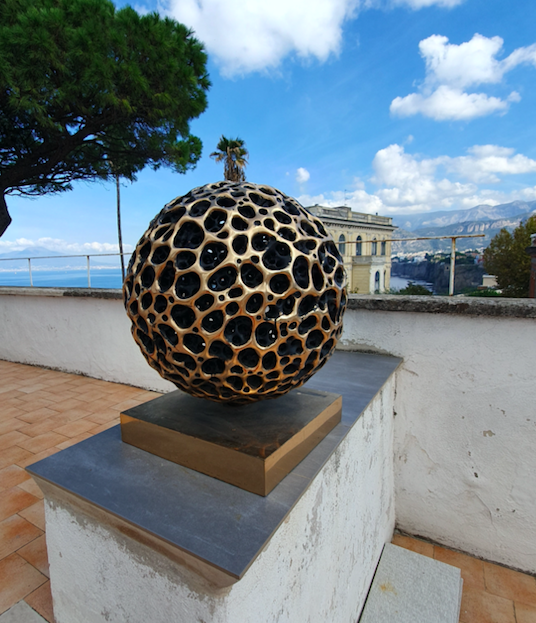When I was turning 20, (back in the last millennium, and indeed more than a decade before its end), a few people asked me, “what do you want for your 20th birthday?”
I answered, “Twenty years between now and when I am 30”.
I thought it was a very clever answer. And it was also an honest answer, based on my worldview at the time. My worldview was that, “by the time you’re 30 you need to be somewhat in a career, have a profession, and be in a steady relationship”. (Seriously, did I ever believe that kind of stuff?)
AND what felt even more important to me when I was 20 was that I also travel to lots of interesting places, meet lots of lovely people, (including a few lovely men), play the field a little – or a lot, and then perhaps possibly maybe “settle down” into something resembling a career, relationship, and even a family. But how the heck to do that within 10 years? Unless I somehow got cloned (not a real possibility as this was still almost ten years before the birth of Dolly the Sheep).
In the end I had a full ten years between 20 and 30, not more, not less, just like those of us lucky ones who get to live until we are 30. And I managed to get a good bit done work-, travel-, and relationship-wise. There wasn’t so much “playing the field” as I met Mike when I was 20 ½. I realised pretty early on that I wanted to be with him into my old age, and that meant that the dating plan had to evaporate.
I remember the sense of urgency and glee about living a full life. A desire to have lots of experiences, savour the world, people and places, and relish learning. That energy has long been a part of my personality and in the main it’s served me well. AND I have also learned about the drawbacks. Perhaps more on the drawbacks another time. AND the upsides are still tremendous. I live and learn a lot and, mostly get a lot of juice out of what might appear to be mundane, daily experiences.
In December I attended a week’s learning programme called Human System Dynamics (HSD) which is an approach to working with change in complex systems (typically organisations). I went along because, heck, with all of this tumult in my life, I am working hard to rebuild and strengthen the vital work strands of my life. Learning energises me, (re)connects me to people, teaches me new skills, and gives me an excuse to be back in touch with clients. I also do better work and get to earn some money which is fun.
AND because my work is about people, I always get to start with myself. To experiment on myself. To try out concepts and see how things land with me. I learned a ton on the course, even if I only scratched the surface of this field. And so, in order to squeeze more juice out of the learnings, a commitment I made is to use some of the learnings, frameworks and tools from the programme on “my, myself, I”. On my life as a professionally-working widow who, in the past four years has also lost a child to suicide, a younger brother, and very special best friend who would have turned 54 today.
Organisations are complex, but goddammit, so is my life. There is nothing particularly predictable about my life (not that there ever is for anyone, but some of us are fooled for longer than others). My life is all continuously moving parts, creating something that is barely recognisable to the me from just a few years back. I want to explore how some of the HSD concepts and language play out in my day-to-day life, how I can apply them and learn from them.
One of my favourite notions from the programme is that of “Sticky Issues”. A Sticky Issue:
- Challenges old assumptions
- Won’t stay solved
- Is too big to think of all at one time
- Has too many pieces to manage
- Involves massive interdependencies
Well yes. I’d say that my current life, widowing, empty nesting without a spouse, raising two kids when I thought I was raising three, and alone, not collaboratively… I’d say that that was pretty sticky. Sticky and messy. An image of wading through molasses comes to mind.
It challenges my old assumptions – about partnering over a lifetime. About raising kids jointly. About kids outliving their parents. About having someone to grow old and retire with. And yes, even someone to be by my side as I die. Most of all it challenges my assumption that people only get what they can handle. I will leave that at that for now.
It won’t stay solved – every time I get my head (or, more specifically, my heart) around a piece of my life, each time confident that I might plan something more than a days or weeks out into the future, some news, some need, some constraint manifests itself. Not necessarily bad-awful stuff. Sometimes jolly good stuff. But the landscape is unstable, and cannot absorb much new news without juddering somewhat. There are myriad aftershocks months after the main earthquakes and tsunamis.
It’s too big to think of all at one time – I think the hardest thing for me is anticipating future losses, of which there will be many. My parents, no doubt some friends, and I can’t even write out the ones that scare me most. Fear of more loss is overwhelming. Stops me in my tracks. Brings me to my knees. I feel like I need to segment aspects of my life. Prune things back to the essentials. My kids. My work. My dog. My cat. My relationships. I have become adept at not assuming that plans will go ahead. It’s not that I don’t care about things – I desperately care. I just don’t assume that what I want to do will happen. And I definitely don’t put things off that are important to me that could be done this year. The loss of a future as I unwittingly imagined it is too large to fathom. As is the loss of my present. Too big to get my head around.
There are too many pieces to manage – the ongoing death admin, the ongoing life admin, relationships forever changed (old ones evaporated or changed; new ones making themselves felt, wanting space), making hard choices about what to focus on with limited attention and energy, keenly aware of all that I cannot accomplish relative to my old days. My identity, health, dreams and wishes, my kids and their aspirations, friendships … there is little point in managing any of these. I am glad I don’t even want to try.
Involve massive interdependencies – at risk of repeating myself, death, grieving, loss, bereavement, multiple losses shake the foundations of life, and everything, every single thing is affected, fragilised, upset. I cannot think of one thing in my life that is as before. Even the dog knows shit has happened. Especially the dog.
How to live with all this stickiness? How to be less stuck in the sticky mess? I want to explore some of this over the coming weeks using some of the HSD frameworks and tools. But before I even start to play with any of that, I know that for me at least, there’s no magic fix. No solution. Just an ongoing need to pay exquisite attention to patterns of behaviour (my own and those of others around me), and an awareness of which patterns bring me some relief and which patterns bring more distress.
For anyone who’d like to explore with me, here are some questions:
- What patterns do you notice in your grieving?
- Which patterns support you and how can you enhance them?
- Which patterns drain you and how can you minimise them?

